Member Directory,
1847 - 1922
George Bancroft
Historian/Public Servant
Centurion, 1856–1891
Charles M. Leupp and William H. Appleton
Worcester, Massachusetts
Washington, District of Columbia
Age fifty-five
Worcester, Massachusetts
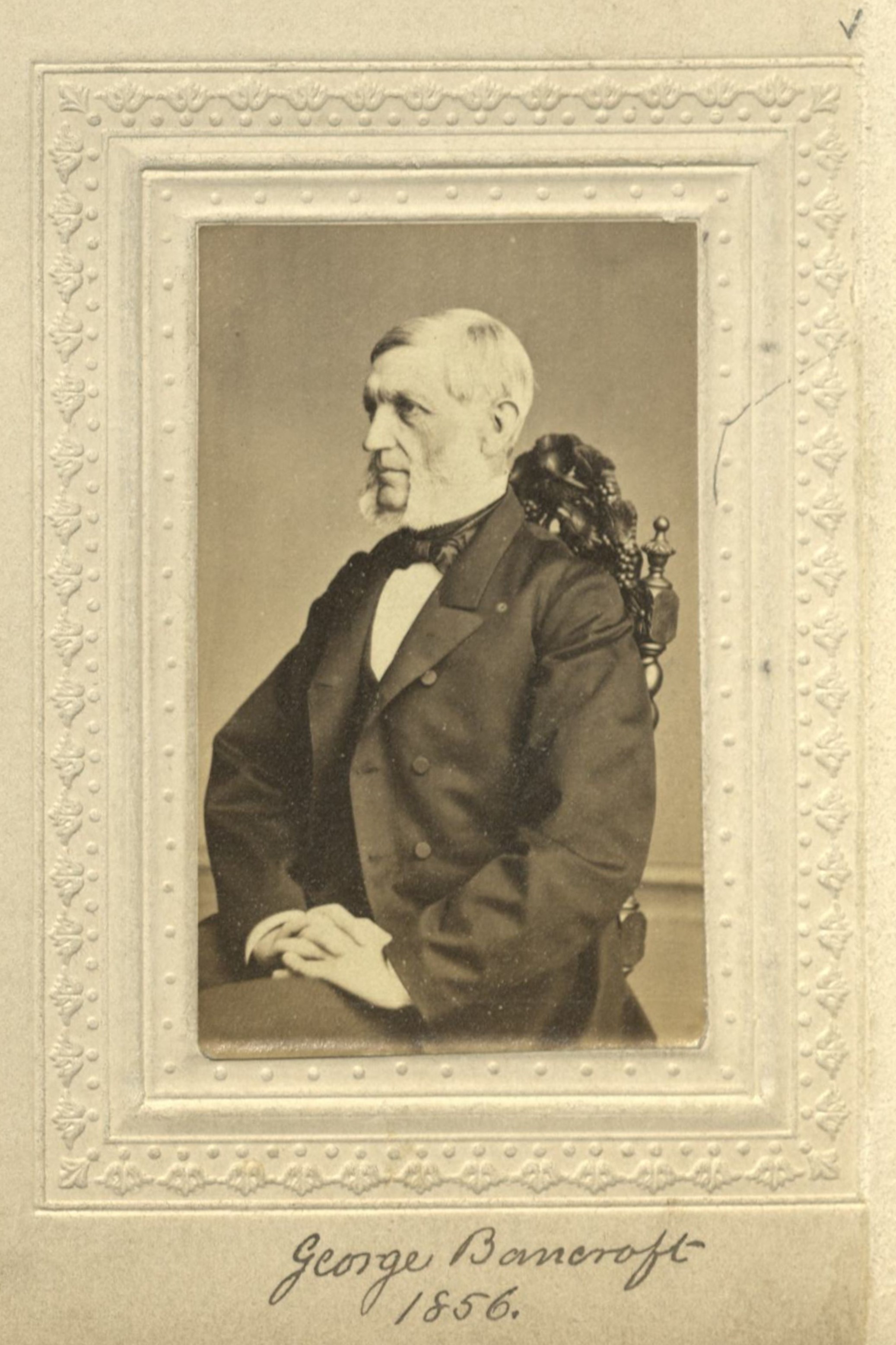
Archivist’s Notes
President of the Century Association, 1864–1867; designated an honorary member in 1880. Father of John C. Bancroft.
Century Memorials
First in years, honors and extended reputation, comes George Bancroft, whose life began with the present century, and had extended over the period of the greatest growth and development of his country of which he was the historian.
He saw it increase from sixteen to forty-two States, and its population from less than ten to sixty-two millions.
He was a boy at school during the war of 1812, a student at Harvard when Napoleon’s star set at Waterloo, and was older when he died than any of the Governments of Europe except those of England and Russia.
Since he attained manhood he has been conspicuous in his country’s affairs. He was in the Cabinet of President Polk, and gave the order for the advance into Texas, and the seizure of California.
He was the founder of the Naval School at Annapolis, and occupied the several positions of Minister to the Court of St. James and to the Empire of Germany.
He was not merely a partisan, but a true lover of his country, and at critical periods of its history was consulted by patriotic men of opposing parties. However men might differ from him in their views, there was no question of the sincerity of his convictions, and the purity and patriotism of his motives.
His acquaintance with distinguished men exceeded that of any American. He had known Alexander Von Humboldt, Byron, Goethe, and all the distinguished savants of their time.
He was the friend and contemporary of Bryant, Irving, Cooper, Prescott, Longfellow and Hawthorne, Bismarck and Von Moltke, and in his long and remarkable career secured the attention and respect of his countrymen from youth to his ripe old age.
For four years, from 1864 to 1868, he was the President of this Club, and he has since 1880 been upon its honorary roll. For his services to his country, for his high rank as a historian, and the place he occupied here, he merits and has received the peculiar respect and admiration of us all.
Henry E. Howland
1892 Century Association Yearbook
Since the last annual meeting of the Century, George Bancroft, an old member of this Association, and at the time of his death its sole surviving ex-president, has passed away.
It has seemed to the Board of Management that this occasion should not be permitted to go by without some memorial of one whom the Century had greatly honored, and whose name had long illustrated and dignified the list of its membership. Nearly a quarter of a century has elapsed since Mr. Bancroft gave up his residence in this city and resigned the office of President of this Association, and to us of the younger generation his connection with the Association has become no more than a tradition; but the record of his long, industrious and well-spent life is widely known and easily accessible—a life devoted to the service of his country, and to the elucidation and perpetuation of its historical records, and which is now itself become a part of his country’s history.
The principal circumstances of Mr. Bancroft’s life are familiar. As most of his friends in his later years had frequent occasion to remember, he was as old as the nineteenth century—having been born in the year 1800. He was of Massachusetts, of a good New England stock. He entered Harvard at the mature age of thirteen years, and after obtaining such education as the Harvard of that day was able to afford, Bancroft, in 1818, took the then unusual step of prosecuting his studies in Europe, where he spent some five years. On his return to the United States he attempted preaching, and was for a time a tutor in Harvard College; but neither of these pursuits proved congenial, and he abandoned them to establish the famous Round Hill School in partnership with Mr. Cogswell, in after years the well-known librarian and the real founder of the Astor Library in this city. The school was a success, perhaps in spite of the principals—for Bancroft at least had not his heart fully in teaching, and this period was one of considerable literary activity on his part, not only in preparing the first volumes of his history but in writing extensively for periodicals. The first volume of his History of the Colonies appeared in 1834, and the second in 1837, after he had ceased his connection with the school, and had been appointed by Mr. Van Buren Collector of the Port of Boston.
Bancroft had long been active in politics as well as in literature, and by 1844 he had become the foremost representative of the Democratic party in Massachusetts, and was made its candidate for Governor. The contest was probably a hopeless one from the first, and Bancroft, although receiving a very large vote, was defeated by about the same majority by which the Whig party carried the State for its Presidential ticket. The defeat was a fortunate one for him and for the country. The honorable position of Governor of Massachusetts affords its incumbent but little opportunity for the exercise of power, and the result of the election was to call Bancroft into a position in the Federal administration where there was the amplest opportunity for the exercise of all his powers. Great events, which were to exercise a momentous influence upon the history of the country, were at hand.
The election of 1844 had turned almost entirely upon the question of the annexation of Texas, and upon that question Bancroft spoke with no uncertain voice. The constitutionality and expediency of the measure were both attacked. Whether the admission of Texas was constitutional, is a question which may be left to those who are specially concerned with the history of the development of constitutional law. It possesses to-day no other importance. But the question of the expediency of the admission of Texas was one which involved considerations far beyond the immediate subject of debate.
The real issue was whether the addition of so large a territory to the slave-holding part of the country, involving increased slave representation in Congress, would not tend to perpetuate the institution of slavery; and the great discussion of that question, which lasted close upon ten years, is of the highest historical value and interest. Mr. Bancroft believed that slavery, if within our own control, would die out at least as rapidly as if Texas were permitted to exist as an independent slave-holding country. The Whig party, as a whole, took the opposite view,—as did also one prominent Democrat, who was afterwards himself to become a President of the Century. A circular letter addressed to Democratic voters, urging them to support Polk for the sake of the party, but to vote for members of Congress opposed to annexation, was signed by a number of well known Democrats, headed by the venerable name of William Cullen Bryant.
The subject, however, was decided before the new Administration took office; and by the time Mr. Polk had been inaugurated nothing remained but the measures necessary for carrying the decision of Congress into effect. Those measures, however, had need to be vigorous. The Mexican Government, which had been for many years engaged in feeble and intermittent efforts to reconquer Texas, had announced in the most emphatic form that it would regard annexation as equivalent to a declaration of war. Bancroft was appointed Secretary of the Navy; and his first duty was to see that the naval force of the country was ready for such duty as a war with Mexico might require.
But this was not all. There were two other unsettled questions of foreign policy of the first importance, which engaged the attention of the President as soon as he took office. In proposing to Mr. Bancroft the post of Secretary of the Navy, Mr. Polk laid down his programme. One of his measures had been embodied in the platform of the Democratic party and publicly discussed: it was the question of Oregon, a question with which Mr. Bancroft many years later was again to be actively connected.
At the beginning of this century, the Pacific coast had been claimed by four great powers, Russia, Spain, England and the United States. Spain, starting from the tropics, claimed indefinitely to the north; Russia, starting from the Arctic Circle, claimed indefinitely to the south; while England and the United States, penetrating the continent with their trappers and explorers, and coming across the Pacific by ship, claimed everything that they temporarily visited and which was not in the actual possession of the other powers. The claims of Spain and Russia were soon disposed of. Spain, in 1819, renounced all pretensions north of what is now the northern boundary of California; Russia, in 1824, agreed to form no settlements south of what is now the southern boundary of Alaska. The question remained, what arbitrary division could be agreed upon between England and the United States; the rights of both being equally uncertain.
The second administration measure, the question of California, was totally different. There was no disputed question of title. The subject was one which had not been publicly discussed or made a party issue, and was indeed familiar only to a few men at Boston, who were interested in foreign commerce, and to a few men in Washington, who were concerned with questions of foreign policy. Of these, Mr. Polk, whose real abilities were underrated by his contemporaries, and have been ignored by historians, was one. He knew the value of that country, and the slender ties which bound it to Mexico, and his desire and purpose were to effect a purchase of so much of California as should at least embrace the port of San Francisco. For such negotiations he had a perfect precedent in the earlier history of the United States. The acquisition of Florida was precisely like the contemplated acquisition of California, and the same means were to be adopted to bring about the desired result. Unsettled claims, a show of military force, and an offer of ready cash, were relied upon to complete the negotiation.
Such were the questions with which a Secretary of the Navy might expect to be called upon to deal under Mr. Polk’s administration, and Mr. Bancroft met them all with energy and success. The Navy was maintained in a state of admirable efficiency; a strong squadron was kept posted in the Gulf of Mexico; and, with an eye both to Oregon and California in the event of hostilities, the Dale, Cyane, Congress, Independence, Portsmouth, Savannah, Warren, Levant, Shark and Erie,—some of them ships whose names are familiar at other periods of our history, some of them still afloat,—were dispatched to the Pacific coast. A little army was assembled in Texas, and for this also Bancroft at times had to care; for during the absence of Governor Marcy from Washington, Mr. Bancroft became Acting Secretary of War, and some of the important orders to General Taylor are signed with his name.
Negotiations with Great Britain followed the course that might have been anticipated. The claims of the United States to Oregon were urged to the highest point, and with a warlike tone; and a compromise was proposed by the British Minister, and accepted by the Washington Cabinet.
With Mexico, however, the result was not such as Mr. Polk had expected. He had failed to appreciate the difference between an autocratic monarchy like Spain, carrying on foreign wars and compelled to meet its pecuniary obligations; and a government which was beyond caring for its financial reputation, and in even an imperfect degree dependent for its existence upon satisfying the public opinion of an excitable and ignorant population. Mexico refused even to receive our Envoy; and a sharp reminder of our power was met by an attack upon General Taylor by the Mexican forces. The Navy at once proceeded to blockade effectually all the Mexican ports upon the Atlantic side, and in pursuance of instructions long before sent by Mr. Bancroft to the commanding officer on the Pacific, requiring him to act promptly upon the receipt of intelligence of hostilities, California was seized by an overwhelming naval force. Had Mr. Bancroft’s purposes been carried out without interference, it would probably have come into our hands without bloodshed. Fremont afterwards claimed, and to a certain extent received, recognition as having won for us California; but the conquest of California was really achieved, and the credit of the achievement is wholly due, to the American Navy under the wise guidance of George Bancroft.
These undertakings involved much labor and anxiety, but they were not sufficient for Mr. Bancroft’s energies. During his brief term of office as Secretary of the Navy, he established the Naval Observatory at Washington, and the Naval Academy at Annapolis. In later years, the foundation of the Naval Academy was an achievement to which he always looked back with the greatest interest; and I well remember that, in speaking of the new Navy now being created, he took for himself no little share of the credit, from the fact that the establishment of a thorough school had made it possible for us to train a race of scientific officers, competent to build and manage the complicated structures of which a modern navy consists.
In September, 1846, after eighteen months’ service in Mr. Polk’s Cabinet, Mr. Bancroft resigned to take the post of Minister at the Court of St. James. In addition to the duties of his office, he undertook, while in England, most valuable historical investigations. His double position as an accomplished historian and as Minister of the United States gave him access to all the collections, public and private, which he desired to examine, and enabled him to discover a vast mass of material theretofore unknown, for the history of the United States.
In 1849 he returned home and took up his residence in the city of New York, where he remained for eighteen busy years. During this time the greater part of his history, comprising an account of the immediate causes which led to the Revolution, and the history of the Revolution itself, was completed. And during this period he joined the Century, and became its President.
At the outbreak of the Civil War, Mr. Bancroft was clear in declaring himself in favor of the Union, and was counted as an active War-Democrat. Indeed, his election to the Presidency of the Century in 1864 was due largely to the mistaken notion that Mr. Verplanck, his predecessor, was not sufficiently in sympathy with the prosecution of the War.
In 1867 Mr. Bancroft, who had been a vigorous supporter of Johnson’s reconstruction policy, was appointed Minister to Berlin, and though he had even then reached a time of life when most men would feel themselves entitled to a period of repose, important work was before him.
In his earliest instructions to Mr. Bancroft upon assuming office, Mr. Seward dwelt upon the fact that there was but a single unsettled question between the United States and Prussia, but that was a question of the first importance. Prussia, in common with the other European nations, had declined to recognize the binding effect of naturalization upon its subjects coming to the United States; and American citizens of German birth, on returning to their native country, were liable to be punished if they had failed to perform their military duty. With the growth of the country and with increasing communication, the question of naturalization was daily becoming more pressing. We had fought one bloody war with England which partly arose from this controversy, but England had never in terms acceded to our views. A new effort was to be made to convert Europe to our way of thinking.
Mr. Bancroft dealt with the subject with the utmost tact and ability, and made admirable use of his wide learning with regard not only to the historical position of the United States, but to the position adopted by other countries in all periods of history. The negotiation was rendered doubly important from the fact, communicated by Count Bismarck, that the English Government had in substance notified him that they would follow the lead of Prussia in whatever was agreed upon. The result was an unqualified success. On February 22, 1868, the first treaty of naturalization ever entered into, and which marks a real epoch in international law, was signed at Berlin. Treaties with Baden, Bavaria, Hesse and Würtemburg, all negotiated by Mr. Bancroft, soon followed; and the precedent thus set made it easy for the United States to negotiate similar treaties with Austria and most of the States of Northern Europe, and most important of all, with Great Britain.
The formation of the North German Confederation had marked the period of Mr. Bancroft’s arrival in Berlin. The war with France followed during his term of service, and the creation of the German Empire; and we may be sure that he was a most interested and intelligent observer of these great events.
His last important duty was, strangely enough, the final settlement of the Oregon question. By the Treaty of Washington, the question of the interpretation of the Oregon Treaty of 1846, involving the possession of San Juan and other islands near Vancouver, was submitted by Great Britain and the United States to the arbitration of the Emperor of Germany; and Mr. Bancroft represented the United States as its agent before the arbitrator. Efficiently supplied by the Department of State at Washington with all the maps and documents bearing upon the question, Mr. Bancroft prepared and presented the legal question involved in this dispute; and he was again rewarded by a complete success. It was his last great public service. At the opening of his argument, submitted to the German Emperor in December, 1871, Mr. Bancroft said: “The treaty of which the interpretation is referred to your Majesty’s arbitrament was ratified more than a quarter of a century ago. Of the sixteen members of the British Cabinet which framed and presented it for the acceptance of the United States, Sir Robert Peel, Lord Aberdeen, and all the rest but one are no more. The British Minister at Washington who signed it is dead. Of American statesmen concerned in it, the Minister at London, the President and Vice-President, the Secretary of State, and every one of the President’s constitutional advisers, except one, have passed away. I alone remain, and after finishing the three-score years and ten that are the days of our years, am selected by my country to uphold its rights.”
Twenty years have now passed since Mr. Bancroft penned these pathetic words. But many years of useful labor were still before him, and the single surviving member of Sir Robert Peel’s Cabinet yet remains to exercise that unequalled gift of persuasive eloquence which is the most striking characteristic of the fascinating personality of Mr. Gladstone.
Upon the close of his mission to Berlin in 1874, Mr. Bancroft’s public service was at an end, and he took up his residence in Washington in the midst of a society which might constantly change, but which was never variable in its deference and affection toward him. His summers were passed at Newport in that delightful garden of roses which looks from the Eastern cliffs and across the tumbling waters towards the distant island of Martha’s Vineyard. His lines were cast in pleasant places, but his life was as laborious as of old. He revised and completed his history to the end of the Revolutionary War; he compiled his history of the formation of the Constitution; and even at the great age of eighty-six he published a pamphlet reviewing the legal tender decisions of the Supreme Court, which is familiar to every friend of a sound currency, under the title of “A Plea for the Constitution Wounded in the House of its Guardians.” His last publication was a sketch of the life of his old friend, Martin Van Buren.
The long record of his useful and honorable career was closed by death on the 17th day of January, 1891. Looking back at it, we have now the right to say that his life was happy. Although a lover of nature in some of its aspects, his tastes led him to prefer the life of cities, the movement and the contact with men. In Boston, in Washington, in London, in New York, in Berlin, and in Newport, he found associations which interested and delighted him. He lived to taste the favorable verdict of posterity upon his literary work. He lived to see the great measures of territorial expansion and of a reconstructed Union carried out; the doctrine of expatriation adopted in international law; and the last boundary dispute with Great Britain settled. His just fame as a historian has somewhat overshadowed his achievements as a public official; but whether as a citizen, a statesman, or a man of letters, the Century will always hold his memory in reverence and honor.
There have been but four Presidents of the Century since the adoption of its Constitution in 1858 [sic: 1857],— Gulian C. Verplanck, George Bancroft, William Cullen Bryant and Daniel Huntington,—and when the day shall come—which we all pray may be far distant—that our present honored President shall no longer be able or willing to give us the benefit of his services and to grace our roll of membership by standing at its head, we shall need to look long and anxiously through our list to find successors worthy to follow the four eminent men whom I have named, and capable by their achievements, their abilities and their unsullied reputations, of carrying on the tradition so worthily handed down.
George Lockhart Rives
1892 Century Association Yearbook
Related Members
Member Directory Home-
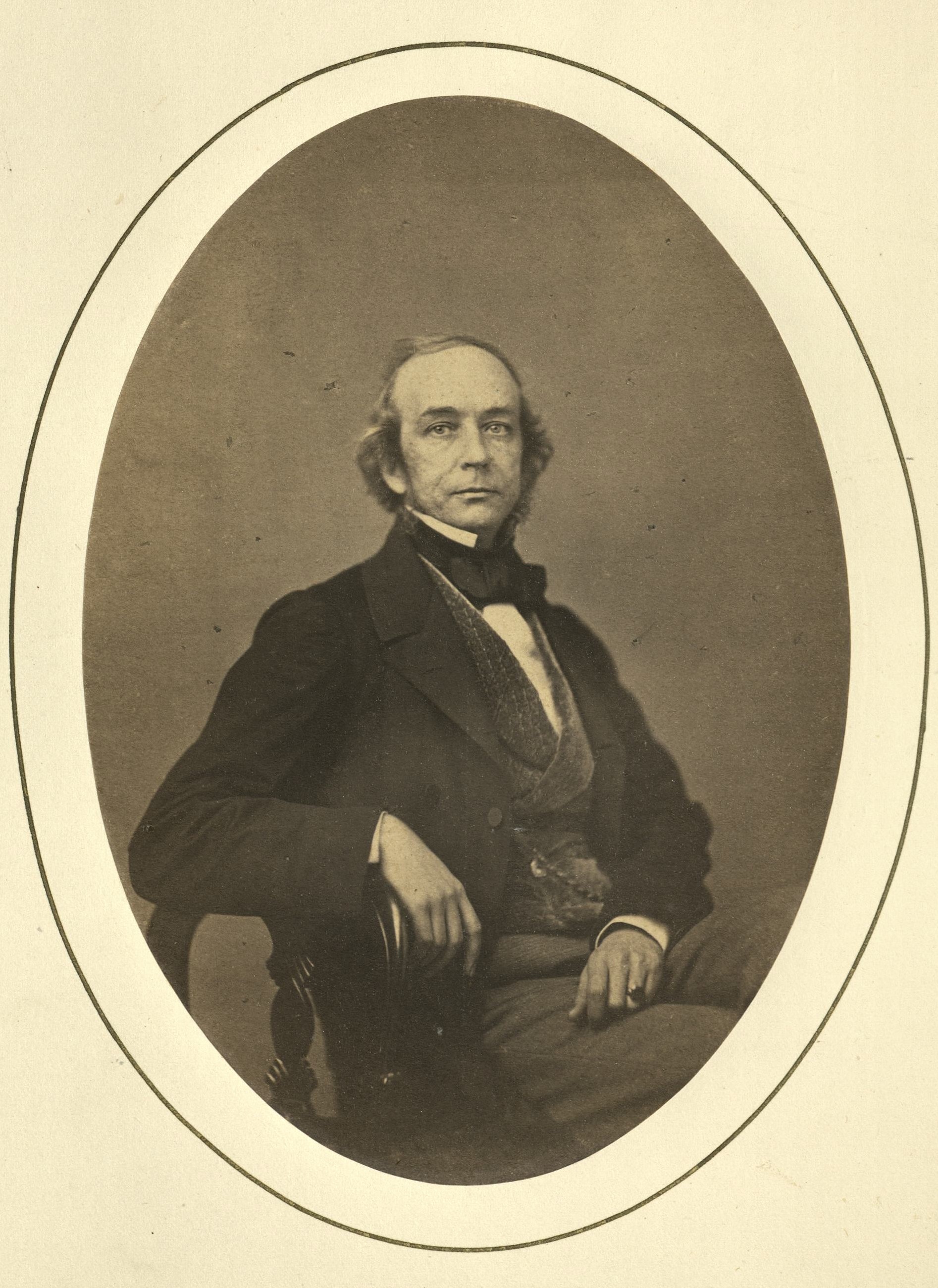 William H. AppletonPublisherCenturion, 1847–1899
William H. AppletonPublisherCenturion, 1847–1899 -
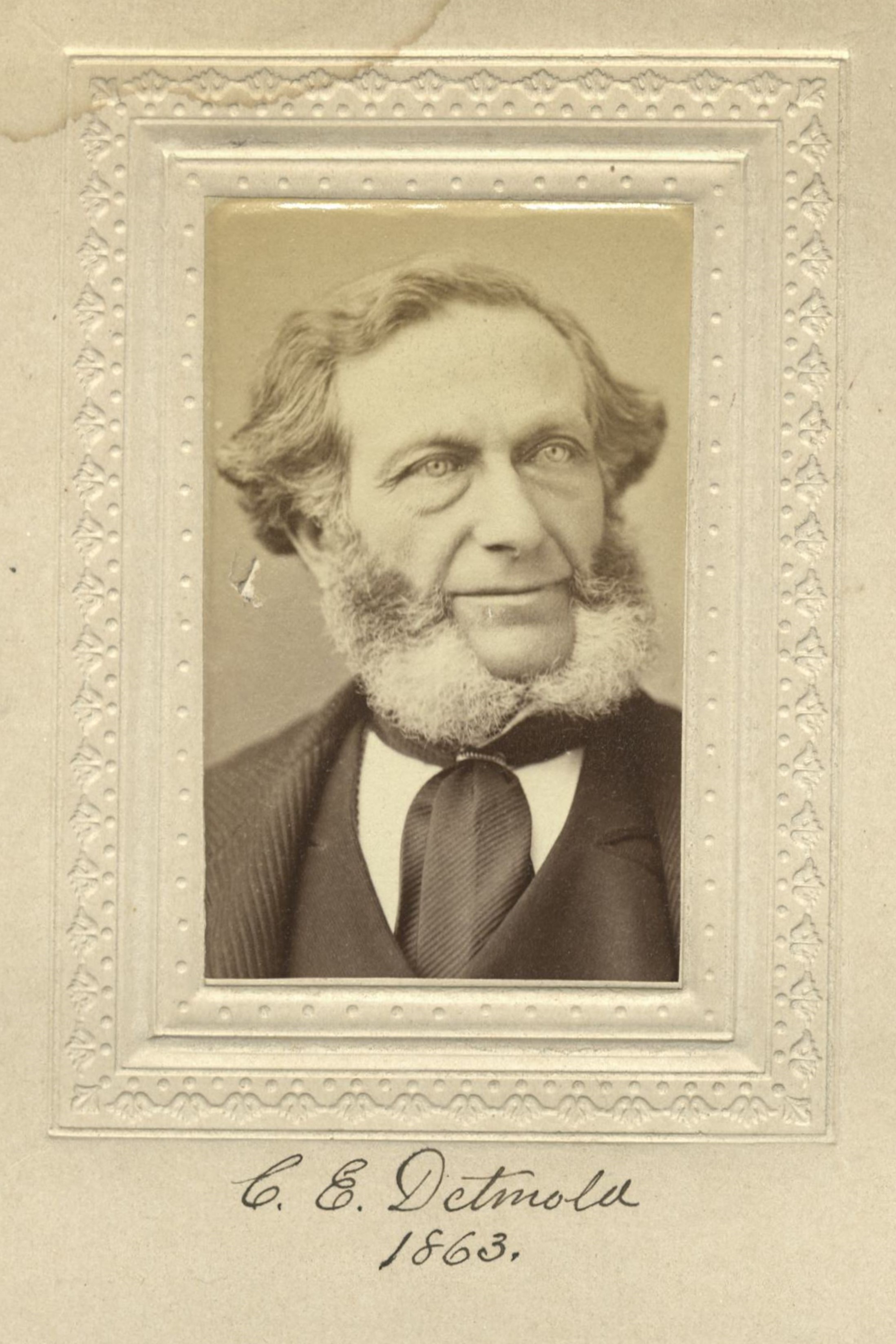 C. E. DetmoldEngineerCenturion, 1863–1887
C. E. DetmoldEngineerCenturion, 1863–1887 -
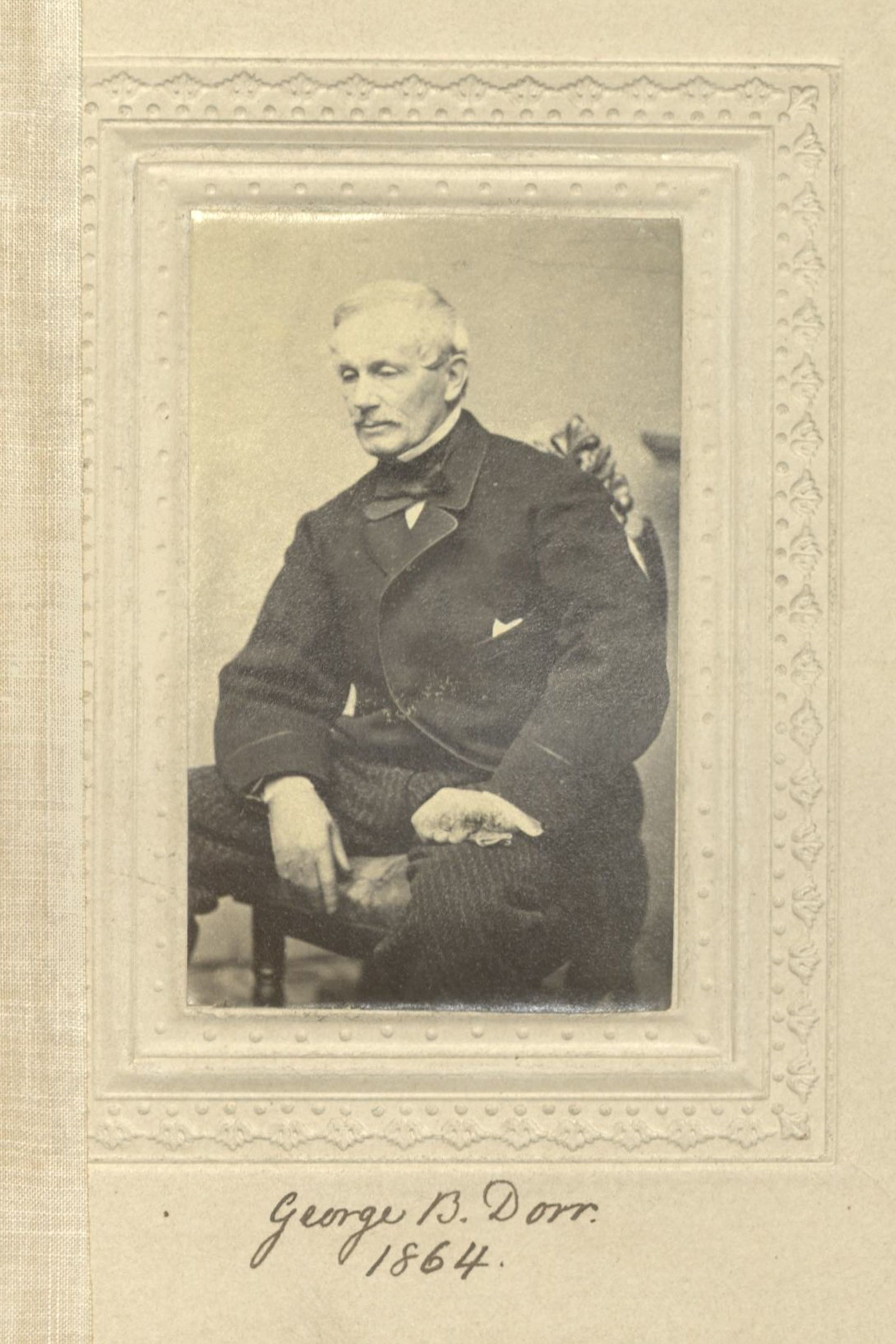 George B. DorrMerchant/TrusteeCenturion, 1864–1876
George B. DorrMerchant/TrusteeCenturion, 1864–1876 -
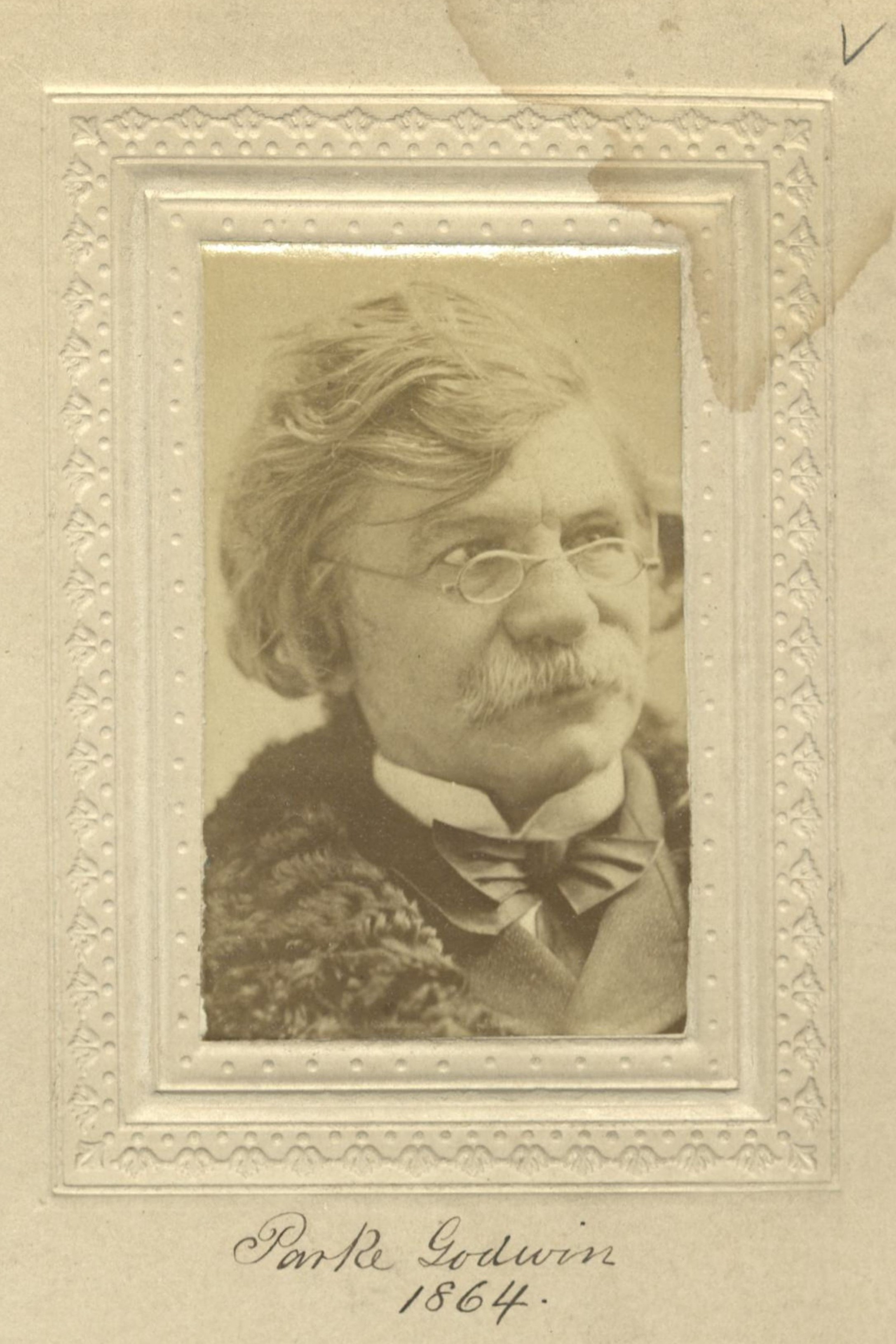 Parke GodwinJournalistCenturion, 1864–1904
Parke GodwinJournalistCenturion, 1864–1904 -
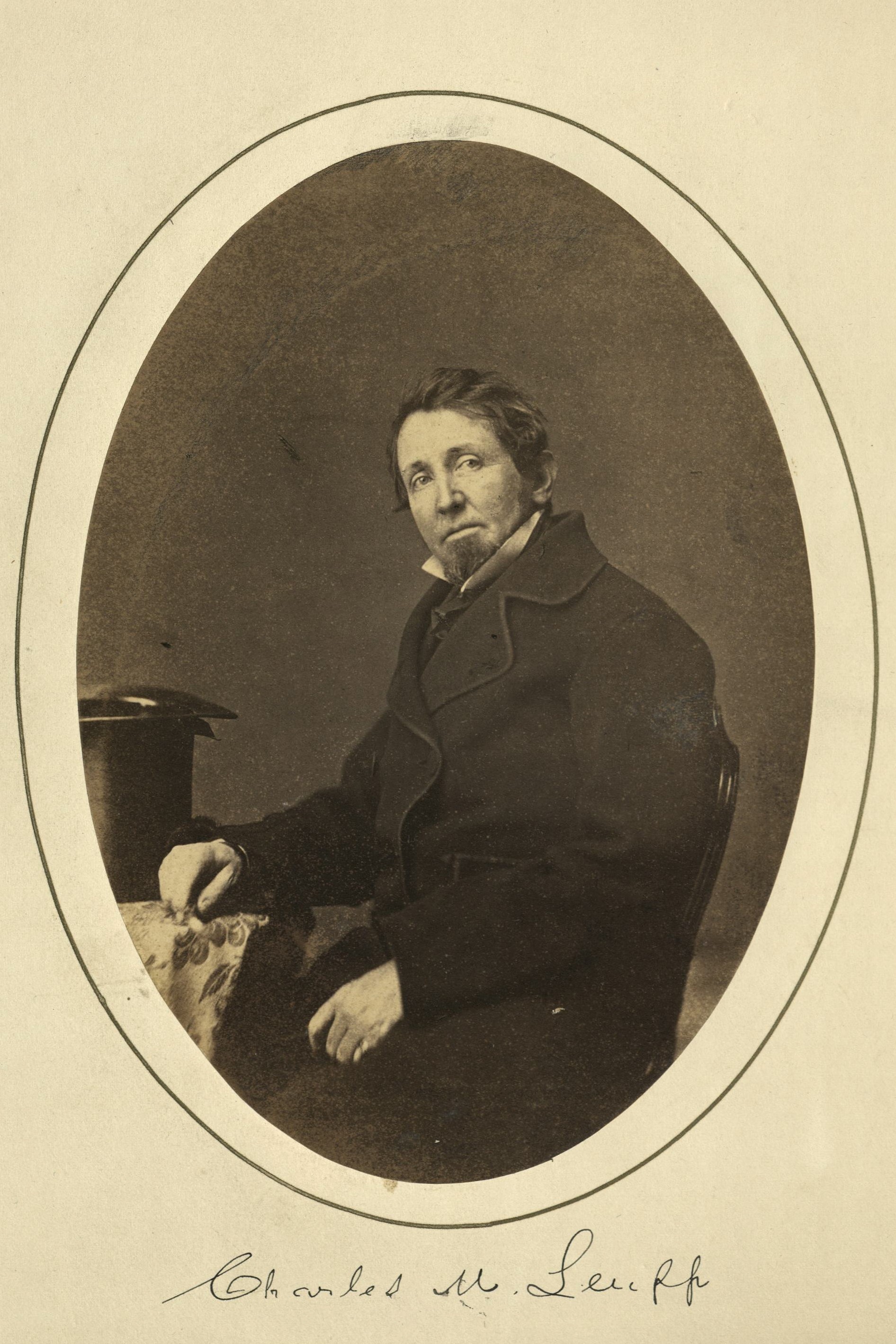 Charles M. LeuppMerchant (Leather)Centurion, 1847–1859
Charles M. LeuppMerchant (Leather)Centurion, 1847–1859 -
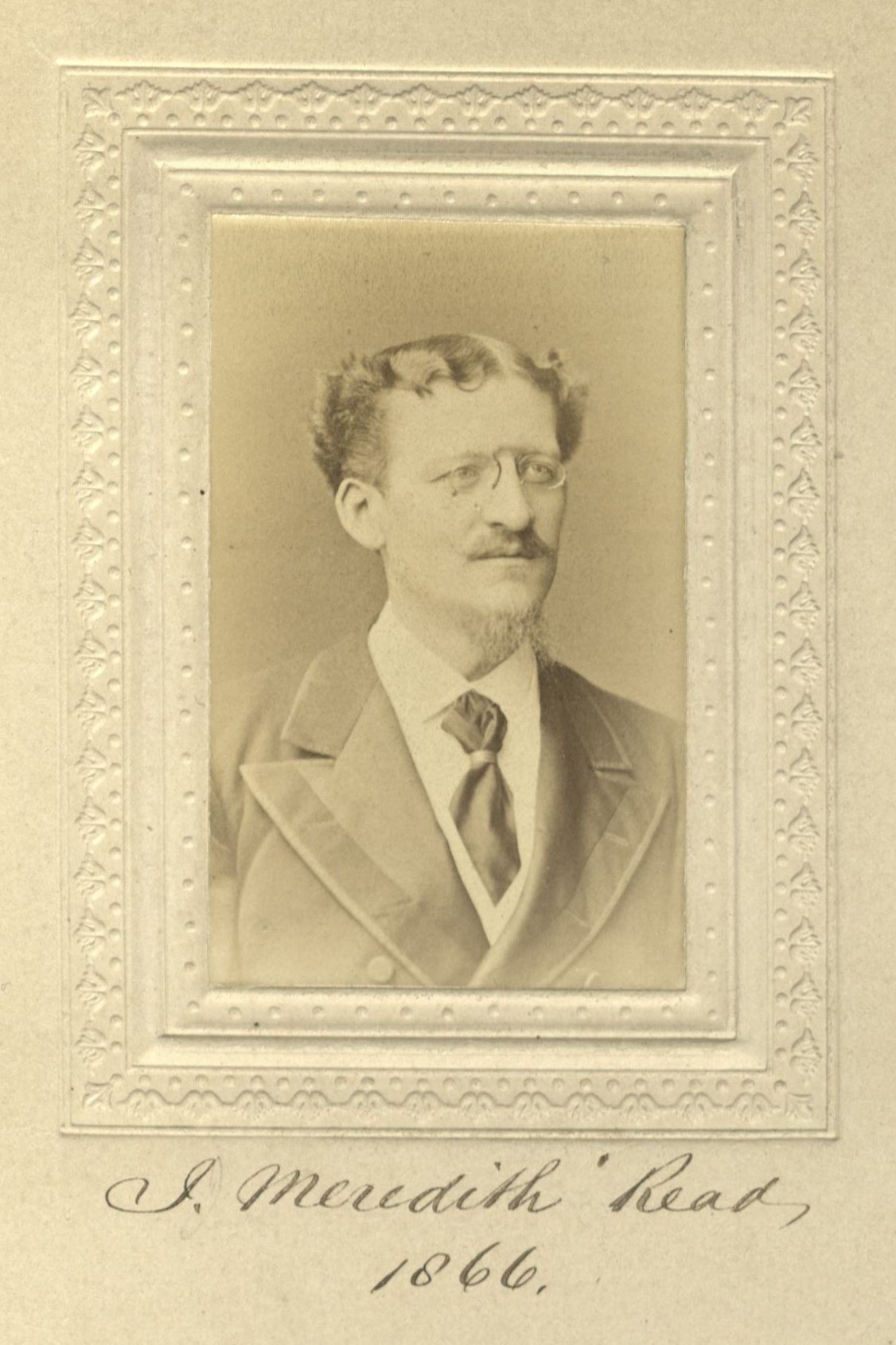 J. Meredith Read Jr.DiplomatCenturion, 1866–1896
J. Meredith Read Jr.DiplomatCenturion, 1866–1896 -
 Alexander T. StewartMerchant (Dry Goods)/RetailerCenturion, 1864–1876
Alexander T. StewartMerchant (Dry Goods)/RetailerCenturion, 1864–1876 -
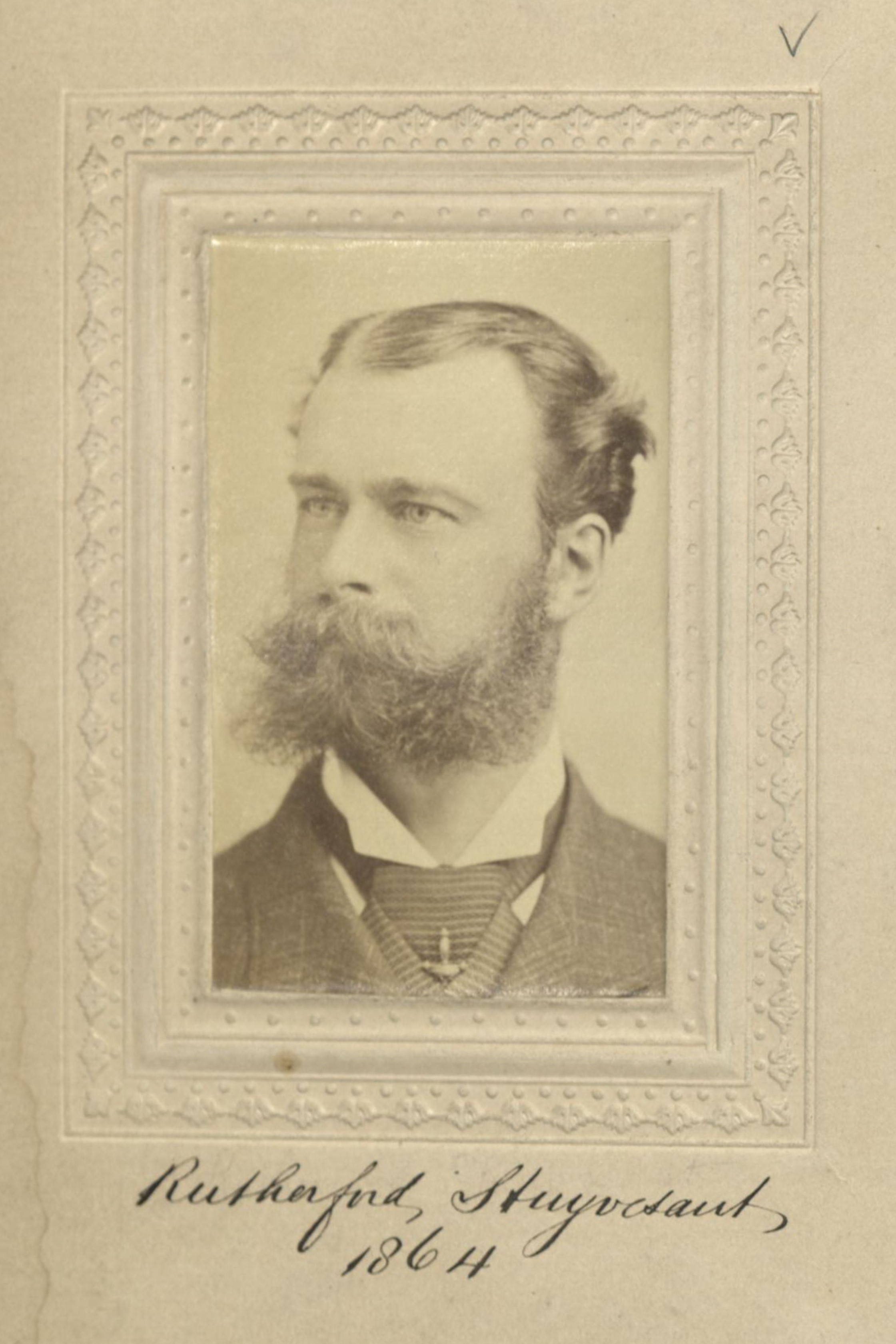 Rutherfurd StuyvesantGentleman/CollectorCenturion, 1864–1909
Rutherfurd StuyvesantGentleman/CollectorCenturion, 1864–1909







